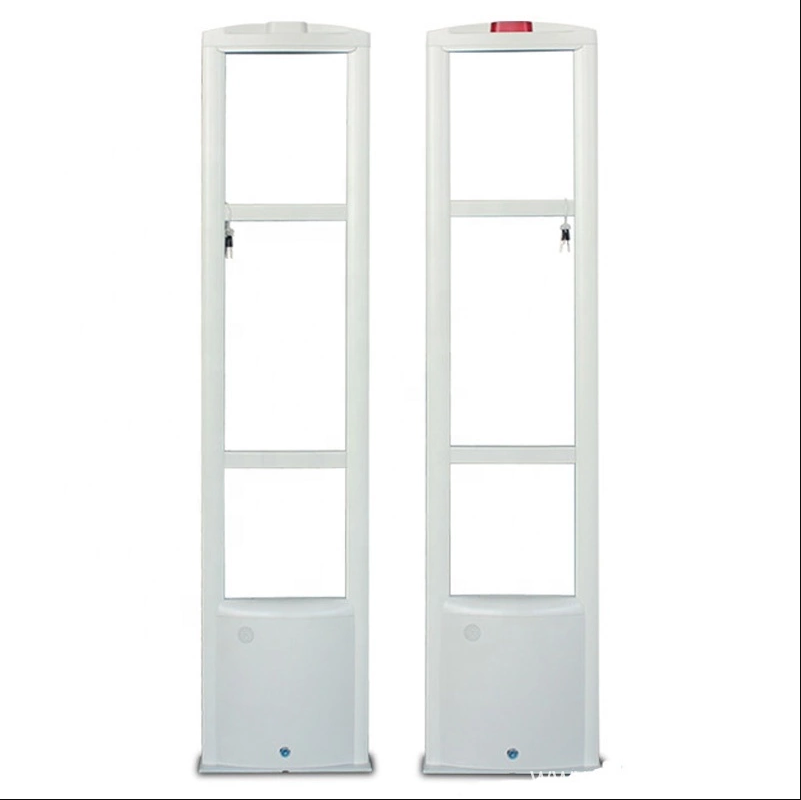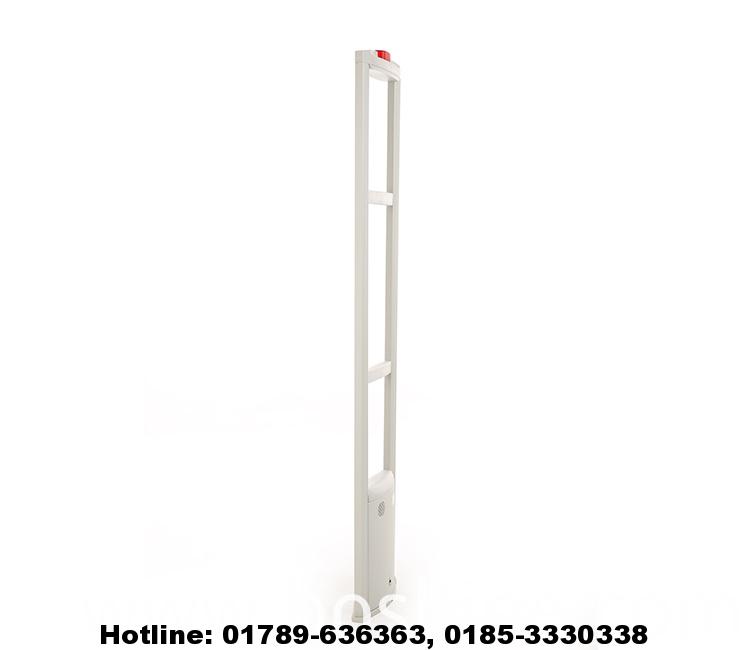Best Security Products Shop in Bangladesh With Best Price
ZKTeco iClock9000-G (GPRS / 3G) Time Attendance Terminal || Hundure RAC-960PEF Fingerprint Time Attendance & Access Controller || Ahuja HBM-60CC Condenser, Cardioid Headband Microphone || Security Mirror || Parking Mirror || ZKTeco uFace800 Plus Face Detection Multi-Biometric T&A and A&C Terminal || Soft Tag (Swing) RF 8.2Mhz For EAS || TOA WM-5325 With WT-5810 UHF Wireless Microphone Sets
HelloTel TS-500 Caller ID Telephone
- 16 Digits LCD
- 16 Ringer Tone
- IDD Lock and Calculator
- FSK/DTMF system auto-detection
- Redial from Caller ID Function
৳ 1,200.00HelloTel TS-500 Caller ID Telephone
৳ 1,200.00HelloTel TS-500 Plus Caller ID Telephone
- 16 Ringer Tone
- IDD Lock and Calculator
- FSK/DTMF system auto-detection
- Calendar, Timer display function
- Redial from Caller ID Function
৳ 1,200.00HelloTel TS-500 Plus Caller ID Telephone
৳ 1,200.00Show ER-66 Megaphone (Hand Mike) 25W with Built-in Siren
- Brand: Show
- Model : ER-66
- Power Output: 25 watt
- Built in Siren
- Comes with Strap and handgrip
- Uses 8pc C size batteries
৳ 4,500.00KERUI Alarm Siren Kit Wireless System Motion Sensor
- Base Station
- Keypad
- 2 Contact Sensors
- 2 Motion Detectors
- Range Extender
- Outdoor Siren
- Easiest design! Easiest setting! Easiest control!
- With least money, get the most functional, qualified and convenient alarm system!
- No need GSM SIM card! No need telephone line!
- Emergency Function! Power off memory Function!
Hotline: 01407-555777 | 01408-555777
Call for PriceKERUI Alarm Siren Kit Wireless System Motion Sensor
Call for PriceKERUI KERUI P819 Wireless PIR Motion Sensor Detector Home Security Burglar Alarm System
- Frequency:433MHz
- Wireless transmitting range:≤100m
- Detection distance:4-6m
- Detection angle:vertical 70° horizontal 110°
- Battery:3*AAA batteries(not included)/power adapter(not included)
- Material:ABS
- Color:White
- Item size:11*7*4.3cm
Hotline: 01407-555777 | 01408-555777
Call for PriceKERUI D025 Window Door Magnet Sensor Detector 5 units (White)
Home Wireless Alarm System
- Brand: Kerui
- Model: D025
- Compound multi-layer design
- Superior circuit design
- Superior ABS material
- Working frequency:433MHz
- Shock resistence:4.7M,1.2M.3.5M,300k
- Transmission distance:50-150m in open area.
Hotline: 01407-555777 | 01408-555777
Call for PriceJovision JVS-A835-YWC 2MP HD Analog Dome Camera
- Model: JVS-A835-YWC
- 1/ 2.7″ CMOS Sensor
- 12Pcs IR LEDs, IR Range 25m
- Support AHD, TVI, CVI, CVBS output
- Low illumination
৳ 1,500.00JOVISION JVS-A530-YWC 5MP HD Dome Camera
- 5MP/IR-LEDs/Bullet Camera
- IR Distance 30m
- 3.6mm/F2.0/UTC
- With DWDR Function
- AHD/TVI/CVI/CVBS 4-in-1
৳ 2,050.00JOVISION JVS-A530-YWC 5MP HD Dome Camera
৳ 2,050.00JOVISION JVS-A510-YWS 5.0MP HD Analog Bullet Camera
• 1/ 2.5″ CMOS Sensor
• All-in-one coaxial HD output, clear and delicate images
• Illuminance, 0.05Lux@ (F1.6, AGC ON), 0LUX with IR
• Support OSD menu control, suitable for user-defined settings
• Adaptive Digital Noise Reduction, 2D-DNR
• Support coaxial control (UTC)
• Video 6KV lightning protection, power supply large capacitor design
• Support DC 6-15V wide voltage supply
• Ingress Protection IP66৳ 2,550.00Jovision JVS-A816-HYC 2MP Full-Color Bullet HD Camera
- 1/ 2.9″ CMOS Sensor
- Resolution:1920×1080
- 4Pcs Warm LEDs, Light Range 15m.
- Support Digital Wide Dynamic Range
- Ingress Protection IP66
- Support UTC
- Support Audio
- Warranty: One Year
৳ 2,550.00Jovision JVS-A836-LYC HD Camera 2.0MP Full Color Bullet
- Jovision JVS-A836-LYC HD Camera
- 1/ 2.9″ CMOS Sensor
- Resolution:1920×1080
- 4Pcs Warm LEDs, Light Range 15m.
- Support Digital Wide Dynamic Range
- Support UTC
- Support Audio
৳ 2,500.00Jovision JVS-N913-YWC 3MP Jovision Starligth IP Camera
- Resolution 2304×1296@25fps
- Ingress Protection IP66
- 18x IR-LED, Up to 25 Meters
- With Starlight Function
- 01 Year Official Warranty
৳ 3,000.00
Epowsens
Established in 2005, Epowsens, a leading enterprise focuses on RF/AM soft label, RF/AM hard tag, RFID inlay/label, EAS/RFID system, etc. With over 10 years of experience, hundreds of employees and 1.2 billion pieces of annual production quantity, our products has cover a large share of the worldwide market. Our company’s amount of annual exports is 5-7 millions USD.
The core of our service is responsibility. We keep it as our culture, making our industry protects the retailers in the world.
EAS (Electronic Article Surveillance)–A security system for preventing theft in retail stores that uses disposable RF /AM label or reusable RF/AM hard tags attached to the merchandise. An alarm is triggered when walking through detection antenna gate at the store exit if a disposable tag was not deactivated or a reusable tag was not removed at the checkout counter.

epowsens Bangladesh
UHF Inlay HF Inlay RFID UHF label RFID HF Label RFID Tag
RF Label Hard Tag Bottle Tag Ink Tag Detacher Am Label Deactivtor Eas System Safer Pin Lanyard Alarm Tag

EAS anti-theft alarm security system Price in Bangladesh

Epowsens Retail eas rf alarm antenna anti-theft security systems in Uttara, Dhaka-Bangladesh

Retail eas rf alarm antenna anti-theft security systems in Uttara, Dhaka



How EAS Systems Working?
How Anti-shoplifting Devices Work? How EAS devices can detect security tags and security labels?
The most effective anti-shoplifting tools these days are tag-and-alarm systems, better known as electronic article surveillance (EAS) systems. Separately, these are good options. Used together, experts say, they’re almost unbeatable. EAS is a technology used to identify articles as they pass through a gated area in a store. This identification is used to alert someone that unauthorized removal of items is being attempted. According to the Association of Automated Identification Manufacturers, over 800,000 EAS systems have been installed worldwide, primarily in the retail arena. EAS systems are useful anywhere there is an opportunity for theft of items of any size. Using an EAS system enables the retailer to display popular items on the floor, where they can be seen, rather than putting them in locked cases or behind the counter.
New EAS technologies are being produced — not only to reduce shoplifting — but also to help increase sales, lower labor costs, speed inventory, improve stockroom logistics and, one day, to replace inventory record-keeping. But for now, we’ll stick to the role of EAS in battling shoplifting in your imaginary store!
Three types of EAS systems dominate the retail industry. In each case, an EAS tag or label is attached to an item. The tag is then deactivated, or taken from an active state where it will alarm an EAS system to an inactive state where it will not flag the alarm. If the tag is a hard, reusable tag, a detacher is used to remove it when a customer purchases the item it’s attached to. If it’s a disposable, paper tag, it can be deactivated by swiping it over a pad or with a handheld scanner that “tells” the tag it’s been authorized to leave the store. If the item has not been deactivated or detached by the clerk, when it is carried through the gates, an alarm will sound.
The use of EAS systems does not completely eliminate shoplifting. However, experts say, theft can be reduced by 60 percent or more when a reliable system is used. Even when a shoplifter manages to leave the store with a tagged item, the tag still must be removed — something that is no longer as easy as it once was. For example, some EAS tags contain special ink capsules, which will damage the stolen item when forcibly, and illegally, removed. (This type of device is known in the industry as benefit denial — we’ll discuss it more later!). Other popular EAS components today include source tagging, whereby an inexpensive label is integrated into the product or its packaging by the manufacturer.
The type of EAS system dictates how wide the exit/entrance aisle may be, and the physics of a particular EAS tag and technology determines which frequency range is used to create a surveillance area. EAS systems range from very low frequencies through the radio frequency range (see How Radio Scanners Work). These EAS systems operate on different principles, are not compatible and have specific benefits and disadvantages. (That’s why the Consumer Products Manufacturers Association, Inc. is encouraging a “tower-centric” EAS approach that can “read” multiple tag technologies rather than the “tag-centric” models that exist today.












